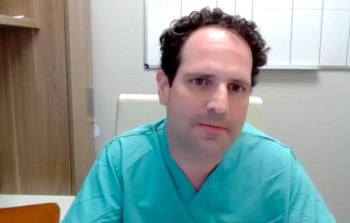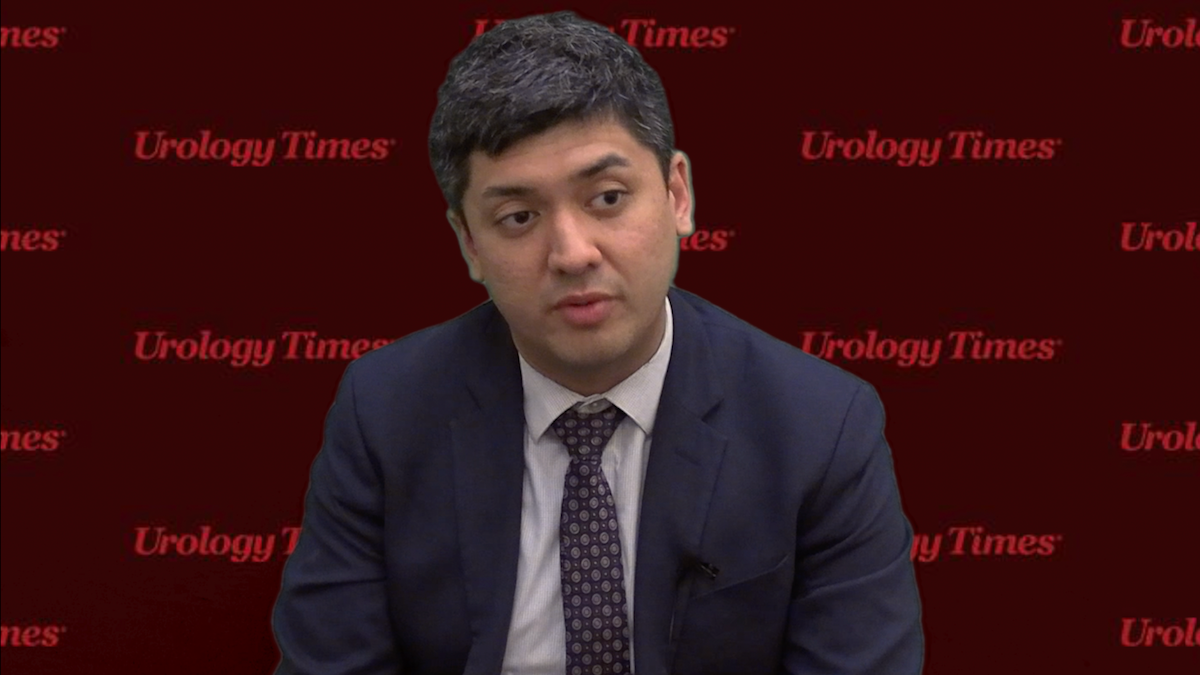
OAB and Incontinence
Latest News
Latest Videos

CME Content
More News

Benjamin M. Brucker, MD, discusses best practices for the onabotulinumtoxinA procedure, spanning all phases of treatment—before, during, and after administration.

Karyn S. Eilber, MD,'s follow-up protocol involves a 2-week post-injection check-up to assess residual urine and the efficacy of the onabotA

The CELLEBRATE trial is aiming to provide additional evidence to support the safety and efficacy of iltamiocel.

Nearly 60% of patients taking vibegron remained on treatment at 1 year.

Yōni.Fit bladder support was granted FDA 510(k) clearance in May 2024.

An expert details key post-procedural recommendations following onabotulinumtoxinA injection for OAB.

An expert walks through specific actions that urologists and their teams can take before, during, and after the procedure.

"This trial will be the benchmark for research reporting in the future," says Melissa R. Kaufman, MD, PhD, FACS.

Grace Khaner and Melissa A. Laudano, MD, share their thoughts on the potential for expanding the use of vibegron early in treatment for OAB.

The investigators reported an overall incidence of AEs of 29.6%.

"What is truly exciting is the potential for this device to meaningfully improve early and long-term continence rates, which can profoundly impact a patient's recovery and overall quality of life,” says Patrick Daily, MD.


The use of onabotulinumtoxinA (onabotA, Botox) for the treatment of overactive bladder comes with several important considerations.

“Like any disease state, you want to make sure you have the right diagnosis; otherwise, you're not going to have a successful treatment plan," says Karyn S. Eilber, MD.

Data from the pivotal CONTINENCE trial showed encouraging efficacy of SCONE neuromodulation therapy.

At week 12, patients in the URO-902 cohorts demonstrated significantly greater improvements in daily microuritions vs placebo.

"In terms of making it a safe, highly reliable operation, if you're comfortable with slings and sphincters, you are very well positioned to learn this surger," says Kiran Sury, MD.

"Glean will enable patients to void naturally, without catheters in place. I believe this advance will yield a better test that mimics actual symptoms," says Bilal I. Chughtai, MD.

"We found that the location that prescribers were registered in, as well as their fellowship training, was significantly associated with higher vibegron prescription rates,” says Grace Khaner.

The 52-week study plans to enroll 16 patients across 4 sites in the US.

“For someone that might be looking at getting into sacral neuromodulation, and has had some reluctance in the past, this does simplify the procedure somewhat," says Colin Goudelocke, MD.

“Now, at 1 year, the 1-hour pad test has been done again, as it's part of the protocol, and she suffered 4 g of incontinence on this test, opposed to 125 g at the beginning,” says Emmanuel Chartier-Kastler, MD, PhD.

"[The lack of] a battery makes it ultra small. That's really important," says Colin Goudelocke, MD.

"I think we're all going to be very eager to see what happens to these patients over time," says Colin Goudelocke, MD.

The ARID II trial is assessing the safety and effectiveness of the device in men who are scheduled to undergo robotic-assisted radical prostatectomy.
















